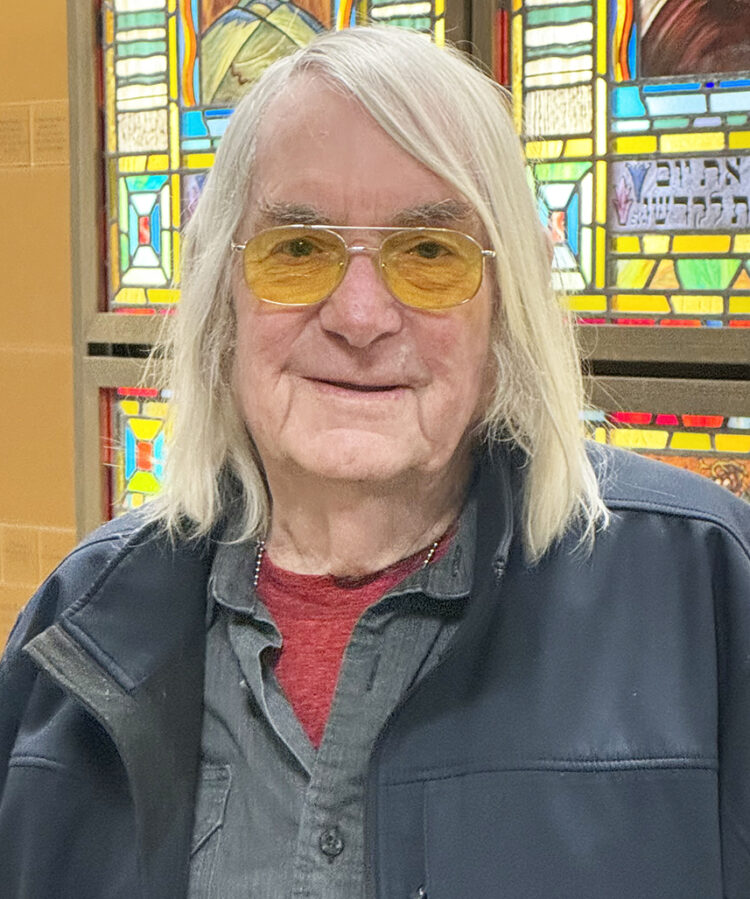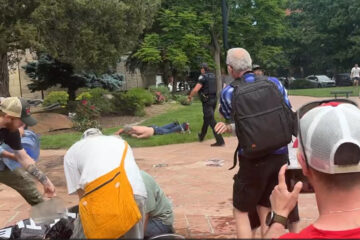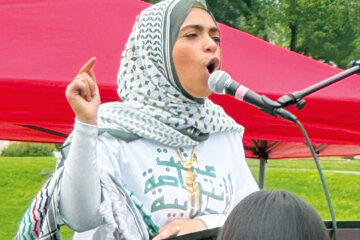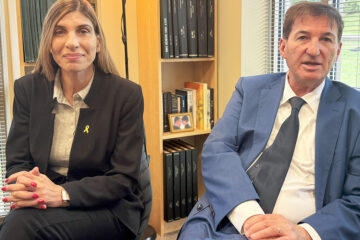At 40th year, Beth Abraham facilities manager retires

By Marshall Weiss, The Dayton Jewish Observer
Dennis Day remembers that when he started as a custodian at Beth Abraham Synagogue, every one of its 600-plus seats was full on the High Holidays. That included the bleachers he set up in the social hall balcony, overlooking the back of the sanctuary.
“I remember, for the High Holidays, everybody had to have a ticket,” Dennis, 76, said of his first years at the old building on Salem and Cornell in Dayton View.
“They were lined up at the door waiting to get in. People had reserved seats. And if somebody else sat in their reserved seat…” He laughed contemplating what might ensue.
That was when Rabbi Samuel Press led services with Cantor Jerome Kopmar. Rabbi Ernest Adler was the shul’s ritual director and Shirley Frankowitz was its executive director.
“She was the one that hired me.”
In December, Dennis retired as Beth Abraham’s facilities manager, a month after he arrived at his 40th year of service to the congregation.
When he began, in 1984, he was on a team of two custodians, a housekeeper, and a part-time handyman. From about the time Beth Abraham moved to its smaller, current facility at Sugar Camp in Oakwood in 2008, Dennis handled the custodial work himself.
“I had a lot of people volunteer to help,” he said. “If it has to be done, you do it. I did so much automatically I didn’t even think about it.”
Dennis was born in Portland, Maine. His father was in the Army and his family moved every two or three years. Dennis served in the Air Force and is considered a Vietnam vet: “I wasn’t in Vietnam, but I got all the ribbons from Vietnam because I was in Thailand, and we were in direct support of Vietnam.”
Along with his year in Thailand, Dennis was stationed for a year in Turkey, a year in South Korea, and six years in West Germany.
It was when he was stationed at Wright-Patt that he met and fell in love with a local girl, Patty. They married, and are surrounded by their three daughters, six grandchildren, and seven great-grandchildren, who all live in the area. “That keeps me busy,” he said.
Dennis first connected with Beth Abraham when he worked as a security guard for two years. His company would send him to guard the synagogue.
“And then, I got to know the people, so they offered me a job inside,” he said.
Over the years, he learned to follow the Hebrew worship services and the ins and outs of kashrut, the Jewish dietary laws. “Eva Rosenberg taught me,” he said.
He shared with The Observer his famous adage: “The first thing I learned when I started was, you don’t talk about anybody, because everybody’s related to somebody.”
Back when he started, Dennis recalled, women didn’t count toward a minyan, the minimum quorum of 10 people needed for public worship services. “You could have nine men and a woman, and they wouldn’t have services for minyan. And that changed.”
Even in those days, the synagogue had its challenges achieving a daily minyan.
“And back then, you weren’t allowed to take pictures on Saturday. You couldn’t record anything. Now, we’re streaming services.”
The biggest changes he’s seen — along with fewer Jews in the Dayton area — have come about with social media and email. “When I started, everybody came in person and talked to you about what was going on. When they had an event, people would come in and go over what they wanted. Now, it’s all email or messages. You don’t have that personal connection.”
As the synagogue’s caretaker, he’s made it through two floods and two lightning strikes, United Synagogue Youth regional conventions, and the move from Dayton View to Oakwood.
“When we moved from Salem to here, it was hard work: taking down all the plaques and everything that we moved out here and put back out here.”
He enjoyed working with and getting to know students, teachers, and staff of Hillel Academy from the time the Jewish day school moved to the third floor of Beth Abraham’s building in Oakwood in 2010.
“They would honor me on Veterans Day. One time, I went in the classroom, and they sang patriotic songs and gave me a card. And another time, they gave me cards from different classrooms. They did that, and during Covid, the kids would always write me thank-you notes for keeping them safe.”
When asked why he stayed with Beth Abraham for so many years, he said, “I just like the people. I like the way they treated me. They accepted me as part of the family. The job was like one big family.”
To read the complete March 2024 Dayton Jewish Observer, click here.





